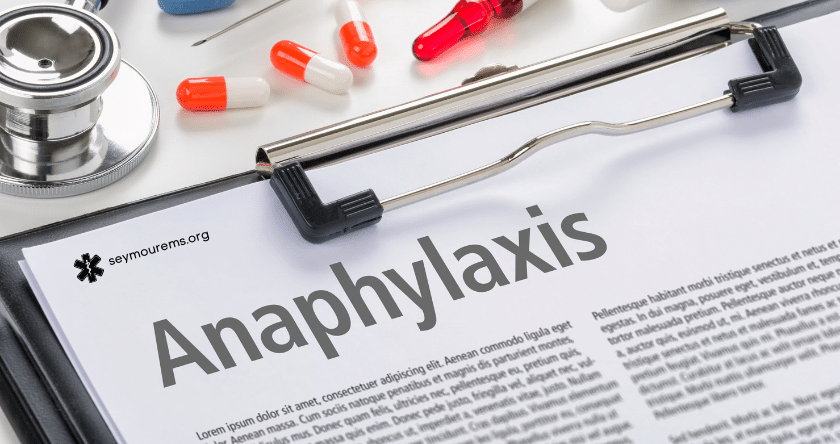Anaphylactic shock is a common medical emergency that affects patients for several different reasons. Although it is common, it can be scary when anaphylactic shock sets in. When patients are exposed to something they are allergic to, they can go into this potentially life-threatening reaction that is called anaphylaxis. Anaphylaxis may cause the immune system to release chemicals that flood the body and cause anaphylactic shock. The condition is dangerous and can lead to fatality if it is not treated immediately. So, how can you recognize the potential Symptoms of Anaphylactic Shock and what should you do if you notice someone going into anaphylactic shock? Let’s explore the symptoms, causes, and treatment.
What Are the Symptoms of Anaphylactic Shock?
When your body goes into anaphylactic shock, your blood pressure can suddenly drop. You can also experience narrowing of the airway that leads to the inability to breathe normally. These serious complications can be deadly if you do not seek medical treatment. Education is very important when it comes to anaphylactic shock because it can help save lives when the public is able to recognize the signs.
The most common symptoms of anaphylaxis include:
- Hives, flushed skin, pale skin, or other skin reactions
- A sudden feeling of being warm
- Difficulty swallowing or the feeling of a lump in your throat
- Nausea, vomiting, diarrhea
- Abdominal pain
- Weak or rapid pulse
- Runny nose and sneezing
- Swollen tongue and lips
- Wheezing
- Difficulty breathing
- Tingling of the hands, feet, mouth, or scalp
If you experience any of these symptoms, it is important to seek medical treatment immediately. When anaphylactic shock sets in, you will experience any of these symptoms:
- Struggling to breathe
- Dizziness
- Confusion
- Feeling of weakness
- Loss of consciousness
Common Causes and Risk Factors
Anaphylactic shock sets in as a result of anaphylaxis which occurs when your immune system overreacts to something you are allergic to. The most common allergens are:
- Medications
- Insect bites
- Foods, especially nuts, shellfish, milk, and eggs
- Latex
- Immunotherapy agents
In some cases, a cause cannot be identified. This is called idiopathic anaphylaxis. Patients who have had a previous anaphylactic reaction, have allergies or asthma or have a family history of anaphylaxis are at increased risk to experience anaphylactic shock.
Complications
Anaphylactic shock is a serious condition. It can not only block your airways and prevent you from breathing normally, but it can also stop your heart. Because of the severity of some reactions, many patients can experience the following complications:
- Brain damage
- Kidney failure
- Cardiogenic shock
- Heart Arrhythmias
- Heart attack
- Death
Treatment for Anaphylactic Shock
If you experience symptoms of anaphylaxis, seek medical care immediately. Many patients who have had previous attacks carry an EpiPen. This should be used at the onset of symptoms. Even if symptoms seem to subside, patients need to get medical attention. If you notice someone experiencing symptoms that could be related to anaphylactic shock, call 911 immediately. You can then help by taking the following steps:
- Get the patient into a comfortable position and elevate their legs. Keep the blood flowing to their vital organs.
- Check for an EpiPen and administer it immediately.
- Perform CPR until medical help arrives if patients are not breathing.
The first step to treating anaphylactic shock is injecting the patient with epinephrine. This will reduce the severity of the allergic reaction. Patients may also receive cortisone and antihistamines intravenously at the hospital. This helps reduce swelling in the air passages and improves a patient’s ability to breathe. If breathing has been an issue, patients will receive oxygen to ensure the body is getting all it needs.
The condition can be extremely dangerous, even fatal. The outlook for patients who experience anaphylactic shock depends on how quickly they get help. This is why it’s important to watch for the symptoms and seek medical treatment immediately. For more information on this condition and how to help or get help in the case of an emergency, talk to your medical provider or a professional in the medical field.


Recent Comments